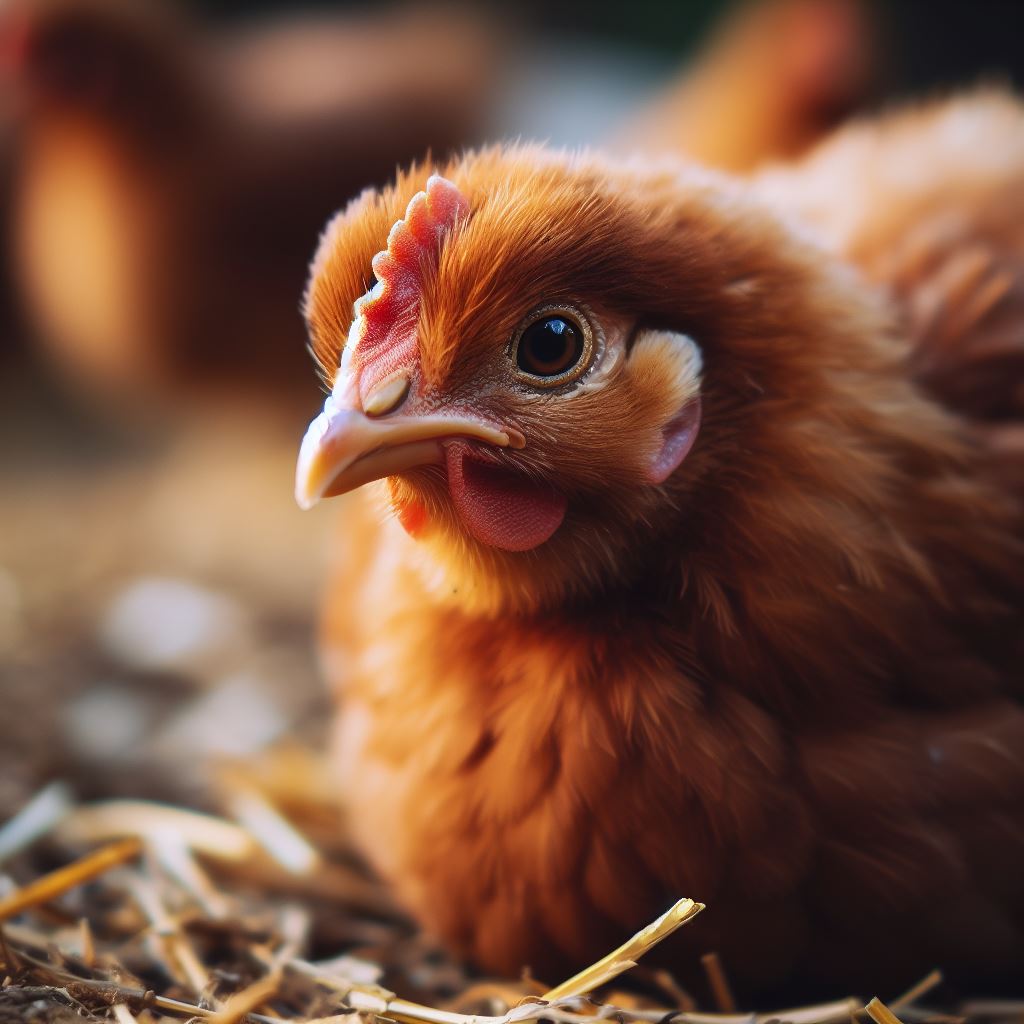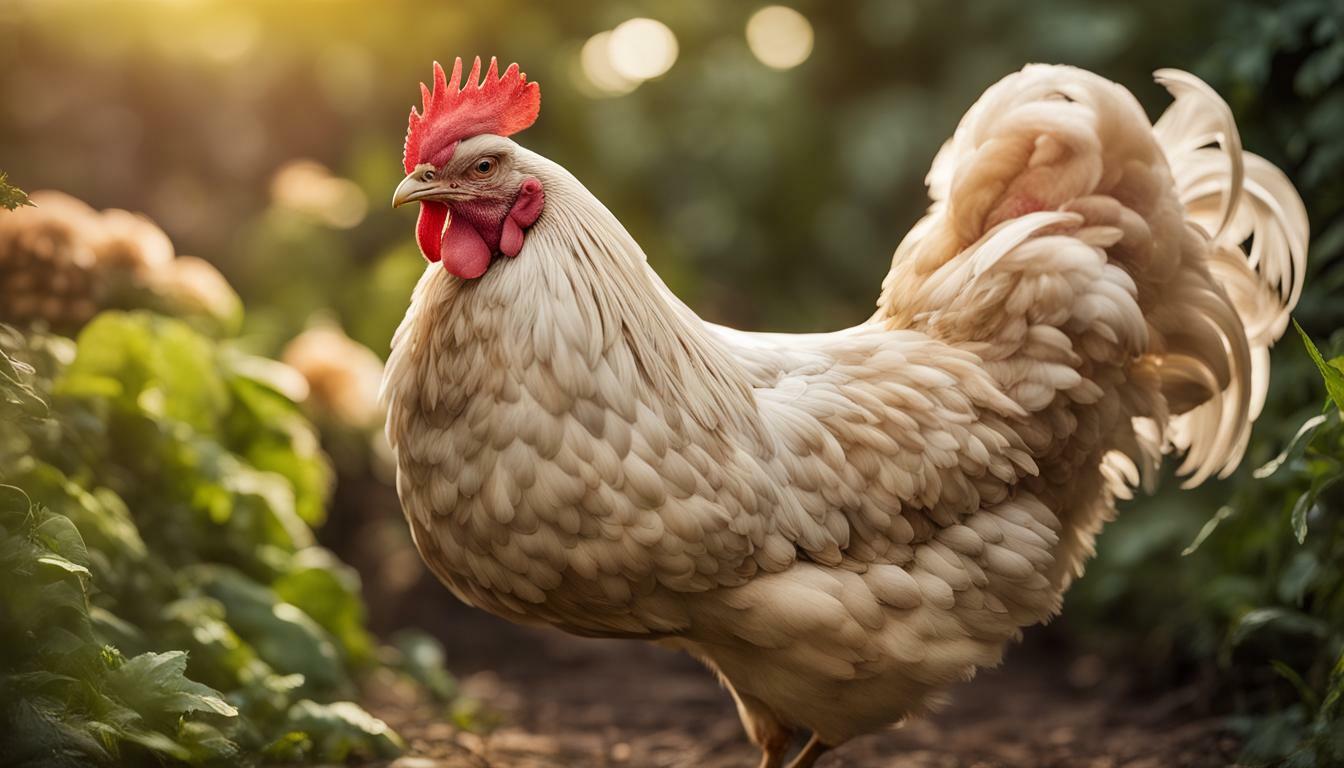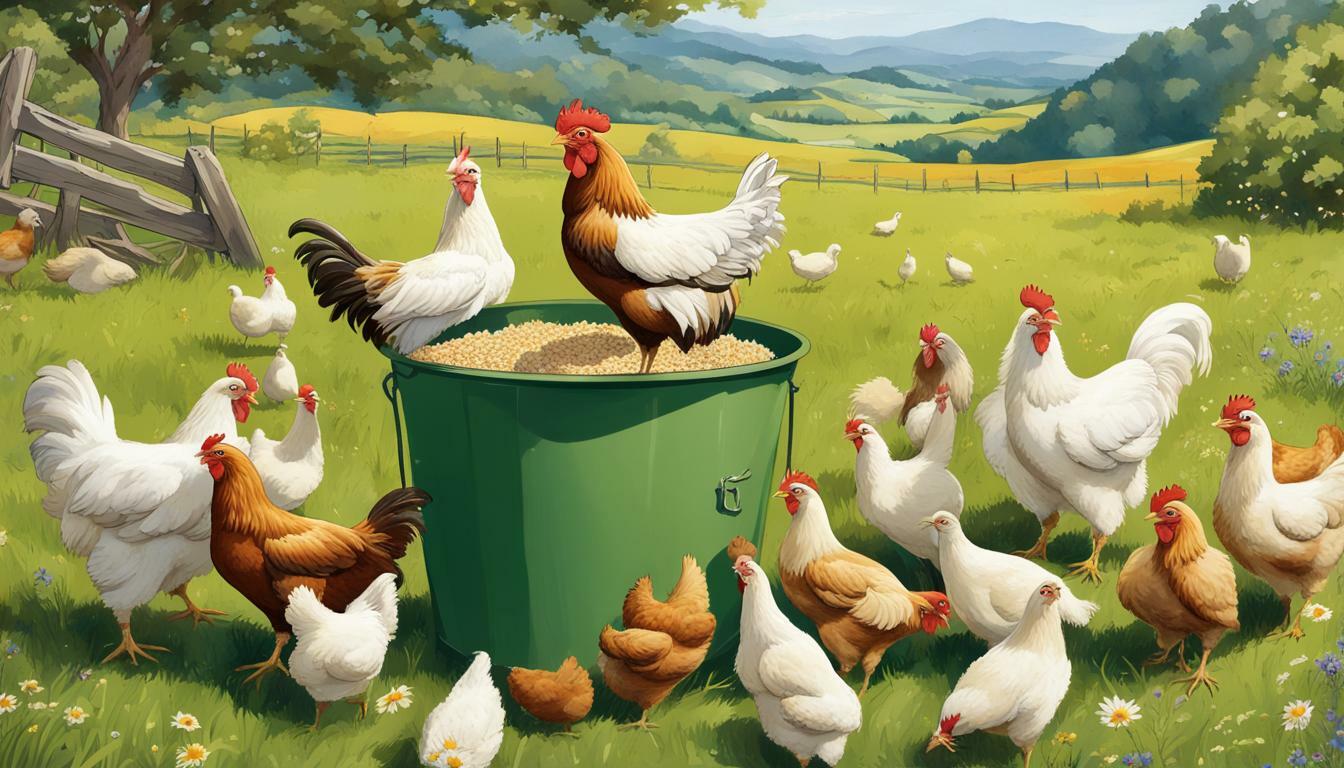Can Chickens Eat Horse Feed? Find Out the Answer Here!

Table of content:
Chickens and other types of poultry are common sights on small farms, backyard flocks, and rural homesteads. Taking proper care of our feathered friends means providing them with a nutritious, balanced diet. A natural question that comes up is whether we can feed our chickens the same types of grains and pellets meant for larger livestock animals like horses.
Is It OK for Chickens to Eat Horse Feed?
Horse feed comes in many forms, such as oats, wheat, corn, barley, and soybean meal. These ingredients are similar to components found in standard “chicken feed”. So on the surface, it would seem harmless to give hens food meant for equines. However, there are some important differences to consider before substituting feeds.
Horse grain and pellets contain higher amounts of proteins, vitamins, and minerals. They are specially formulated to meet the nutritional needs of large, active animals like horses. The protein levels in particular tend to be too high for the average backyard chicken’s diet.
Too much protein can put extra strain on a chicken’s digestive system. Their gizzard and intestines are not designed to process large volumes of dense proteins over extended periods of time. Excess protein gets excreted through the urine, which further taxes the kidneys.
What Happens if Chickens Eat Horse Feed?
Feeding chickens an improper diet can lead to serious health issues:
- Weight gain: The extra fat and higher energy content causes chickens to put on weight quickly. Obesity stresses the body and makes egg-laying difficult.
- Eggshell problems: Too much protein causes calcium depletion, resulting in thin or soft eggshells. This also reduces egg production.
- Kidney damage: Excess protein taxes the kidneys and can lead to gout or even kidney failure over time.
- Molting issues: Nutritional imbalances can disrupt natural molting cycles, causing irregular feather loss.
- Loose droppings: The excess protein and unfamiliar grains may cause temporary digestive upset, resulting in loose, watery droppings.
The higher calcium levels in horse feed are also problematic. Too much calcium causes skeletal issues and eggshell abnormalities in laying hens. The unfamiliar grains could also lead to an intestinal blockage if chickens gorge on horse feed.
For these reasons, it’s generally ill-advised to make horse feed a primary component of a chicken’s diet. Even giving it as an occasional “treat” is not recommended.
Will Chicken Feed Hurt Horses?
On the flip side, horse owners may wonder if feeding their equine companions chicken feed could be harmful. Most veterinarians and equine nutritionists agree this is not recommended either.
Chicken feed is botanically different from feeds designed for horses. It contains grains, seeds, and minerals tailored to a chicken’s nutritional requirements. Horse grain incorporates ingredients better suited for equine digestion and protein needs.
Here are some potential consequences of regularly feeding horse feed to chickens:
- Nutritional deficiencies: Chicken feed won’t provide adequate proteins, vitamins, or minerals to meet a horse’s dietary needs.
- Colic and intestinal issues: Horses are prone to colic. Chicken feed contains unfamiliar grains and seeds that horses are not adapted to digesting properly. This increases colic risk.
- Weight loss: Chicken feed won’t provide sufficient caloric energy to fuel a horse’s active lifestyle and keep weight on. Racing and working horses with high energy demands would lose condition.
- Compromised durability: Without proper fatty acids for hoof and coat health, durability may suffer. Their mane, tail, and hoof condition could decline.
- Behavior issues: Protein and mineral deficiencies may cause anxious, erratic behavior in horses used to a balanced diet.
As with chickens eating horse feed, giving the wrong feed to horses can have detrimental effects on their health and well-being over time. It’s best to stick to feed formulated specifically for equines.
Can I Feed My Chickens Horse Grain?
This really depends on the specific type of horse grain in question. Some grains more commonly found in horse feed may be safe for chickens in moderation. This includes whole grains like:
- Oats
- Wheat
- Barley
- Corn
Small amounts of these ingredients are unlikely to cause issues as an occasional “treat”. But they should never make up the bulk of a chicken’s diet.
It’s also crucial to slowly transition any new grains. An abrupt change can disrupt digestion and cause loose droppings until their system adjusts.
Things to consider if supplementing chicken feed with horse grains:
- Stick to unprocessed grains, not commercial mixes with added protein.
- Introduce new grains slowly over 2-3 weeks.
- Limit to 1-2 tablespoons per hen per day at most.
- Provide plenty of insoluble fiber from greens, vegetables, etc.
- Offer a calcium supplement like oyster shell.
- Watch closely for signs of digestive upset or weight gain.
- Discontinue use if any health issues develop.
When in doubt, it’s usually best to play it safe and stick to standard chicken feeds. But natural whole grains similar to scratch may be fine in very limited amounts if introduced slowly.
Can I Give My Chickens Horse Pellets?
Commercially prepared horse pellets are not recommended for long-term chicken feeding. Here’s why:
- Pellets are compressed at high heat, which alters nutritional composition.
- Binders and additives like molasses are unhealthy for chickens.
- Medications added to some horse feeds could be toxic.
- Protein levels are too high.
- Chickens may choke on large, hard pellets.
For these reasons, horse pellets are generally unsuitable as chicken feed. Small amounts very occasionally may be ok, but this is controversial among poultry experts. It’s safer to avoid horse pellets altogether when feeding backyard chickens.
Is Horse Feed Safe for Chickens?
In general, regularly feeding a diet intended for horses is not considered safe for chickens. While horses and chickens are both livestock, their nutritional requirements differ quite a bit. Horse feed is specially formulated with the much larger, more active horse in mind.
Chickens have smaller bodies and digestive systems better adapted for smaller seeds, grains, and insects. The protein and mineral levels they require are much lower than a horse. Excessive amounts over extended periods can overwhelm a chicken’s system and lead to obesity, kidney dysfunction, pancreatic problems, and other issues.
Occasional nibbles of certain unprocessed grains like oats or wheat are unlikely to cause harm. But horse feed should never comprise the main component of a chicken’s diet. Stick to standard poultry feeds, and supplement with garden produce and treats. Consulting an avian veterinarian about your flock’s diet is also a smart idea.
Will Horses Eat Chicken Feed?
Horses tend to be somewhat less picky than chickens about what they will consume. If hungry enough, some horses may eat chicken feed. But this does not mean it is nutritionally suitable for them.
Chicken feed lacks adequate protein, calories, vitamins, and minerals to properly nourish a horse. Essential fatty acids for hoof and digestive health may also be absent. While horses might consume chicken feed, they cannot thrive long-term on a diet tailored for a different species. Significant nutritional deficiencies and health consequences would likely result.
Owners of especially dominant horses report them voluntarily eating some chicken feed if housed with poultry. But any amount of chicken feed would need to be balanced out with ample hay, grass, and other roughage to avoid problems. Relying solely on a chicken’s diet would be detrimental to a horse’s health.
Final Thoughts
Backyard flock owners often wonder if they can cut costs by feeding chickens and horses the same grains and pellets. But the bottom line is the two species have very different nutritional needs. What is perfectly formulated for a horse’s diet and digestive tract can be quite harmful to a chicken over time.
While an occasional nibble of certain grains like oats is unlikely to be catastrophic, neither animal should subsist primarily on a diet intended for the other. There are good reasons horse feed and chicken feed are formulated differently. Each contains a balance of proteins, fats, vitamins, minerals, and grains tailored specifically to chickens or horses.
Cross-feeding between species may offer convenience in theory. But in practice it often leads to malnutrition and other health repercussions. It’s safer to stick to feed designed for each animal’s physiology, and consult your veterinarian if diet questions arise. This will help ensure your chickens and horses alike stay happy and healthy.
Welcome. I’m Adreena Shanum, the proud owner of this website, and I am incredibly passionate about animals, especially poultry. I founded adreenapets.com as a labor of love, stemming from my desire to share my knowledge and experiences with poultry enthusiasts worldwide.




